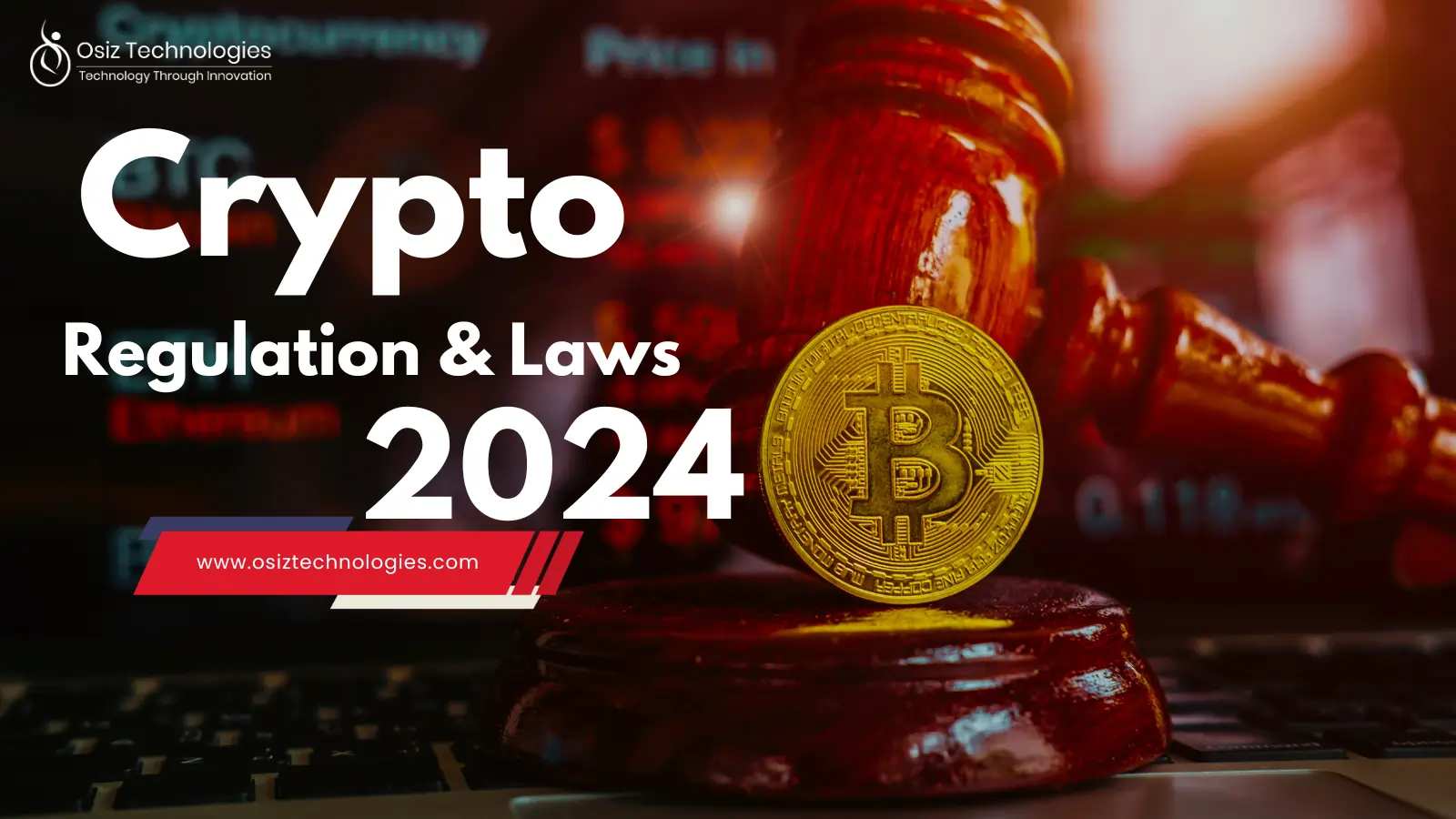Stay ahead of the curve with expert insights on the rapidly evolving crypto regulatory landscape in 2024. Our blog provides insights on crucial analysis and strategies for navigating this dynamic environment.
Overview Of Crypto Market In 2024
The cryptocurrency market in 2024 is experiencing unprecedented growth and transformation, marked by increasing mainstream adoption, significant institutional investment, and the expansion of decentralized finance (DeFi). Businesses and individuals are increasingly using cryptocurrencies for everyday transactions and investments, while major financial institutions integrate crypto assets into their portfolios.
Institutional investors, such as hedge funds and pension funds, are diversifying into crypto, seeking higher returns and diversification benefits. Meanwhile, DeFi platforms are continuously innovating by offering decentralized alternatives to traditional financial services. This dynamic landscape presents both opportunities and challenges as the market evolves and matures.
Importance Of Regulations and Laws In the Crypto Space
Regulations and laws are essential in the cryptocurrency space to ensure market integrity, protect consumers, and promote financial stability. They help prevent fraudulent activities and illicit uses of cryptocurrencies, such as money laundering and terrorist financing, by enforcing stringent anti-money laundering (AML) and combating the financing of terrorism (CFT) measures.
Clear regulatory frameworks foster innovation by providing a predictable environment for businesses and investors, encouraging growth and development in the sector. Moreover, international regulatory coordination is essential to address the borderless nature of cryptocurrencies and prevent regulatory arbitrage.
Global Regulatory Landscape
The global regulatory landscape for cryptocurrencies is diverse and constantly evolving. Different regions are adopting various approaches to balance innovation with risk management. This section explores the regulatory environments in key regions around the world.
United States Crypto Regulations
In the United States, the regulatory approach to cryptocurrencies is multifaceted and involves several key agencies. The Securities and Exchange Commission (SEC) and the Commodity Futures Trading Commission (CFTC) provide guidance on classifying cryptocurrencies as securities or commodities, respectively. The Financial Crimes Enforcement Network (FinCEN) enforces strict anti-money laundering (AML) regulations, requiring exchanges to implement comprehensive know-your-customer (KYC) procedures. Also, the Internal Revenue Service (IRS) has clear guidelines on the taxation of crypto assets, treating them as property for tax purposes. Ongoing legislative efforts focus on defining the regulatory status of various crypto assets and improving consumer protections.
European Union Crypto Laws
The European Union is working towards a unified regulatory framework through the Markets in Crypto-Assets (MiCA) regulation, which aims to harmonize crypto regulations across member states. MiCA addresses key issues such as consumer protection, market integrity, and the licensing requirements for crypto-asset service providers (CASPs). This comprehensive framework seeks to create a consistent regulatory environment across the EU, reducing regulatory fragmentation, and enhancing legal clarity. Individual countries like Germany and France have already established their regulatory frameworks by focusing on integrating cryptocurrencies into the financial system while ensuring robust oversight and compliance.
Asia-Pacific Crypto Regulations
Asia-Pacific presents a diverse regulatory environment for cryptocurrencies. China has taken a stringent stance, banning cryptocurrency trading and mining while promoting its own central bank digital currency (CBDC), the Digital Yuan. Japan, on the other hand, remains a crypto-friendly nation, with the Financial Services Agency (FSA) regulating exchanges and enforcing strict AML policies. South Korea has implemented rigorous regulations, including real-name verification for transactions and a comprehensive tax framework for crypto gains. Meanwhile, countries like Singapore and Hong Kong have established themselves as crypto hubs with favorable regulatory environments and clear guidelines to attract blockchain and crypto businesses.
Emerging Markets and Crypto Regulations
Emerging markets, particularly in Latin America, the Middle East, and Africa, are increasingly embracing cryptocurrencies as tools for economic development and financial inclusion. In Latin America, El Salvador made headlines by recognizing Bitcoin as a legal tender, while other nations like Brazil and Argentina are developing regulatory frameworks to leverage cryptocurrencies for economic stability. The Middle East, particularly the United Arab Emirates (UAE) and Bahrain has established favorable regulatory environments, creating free zones to attract blockchain and crypto businesses. In Africa, countries such as Nigeria and Kenya are leveraging cryptocurrencies to enhance financial inclusion, with varying degrees of regulatory oversight to manage associated risks.
Wrapping Up
The regulatory landscape for cryptocurrencies in 2024 is marked by dynamic changes as governments and regulatory bodies worldwide strive to strike a balance between fostering innovation and ensuring stability and security. Staying informed about these developments is crucial for investors, businesses, and policymakers navigating the evolving crypto ecosystem. By understanding the latest regulations and their implications, stakeholders can better navigate the opportunities and challenges in the rapidly evolving world of cryptocurrencies. Consult experts from a leading Cryptocurrency Exchange Development Company like Osiz, to enquire more about the crypto regulations for 2024.
Listen To The Article









